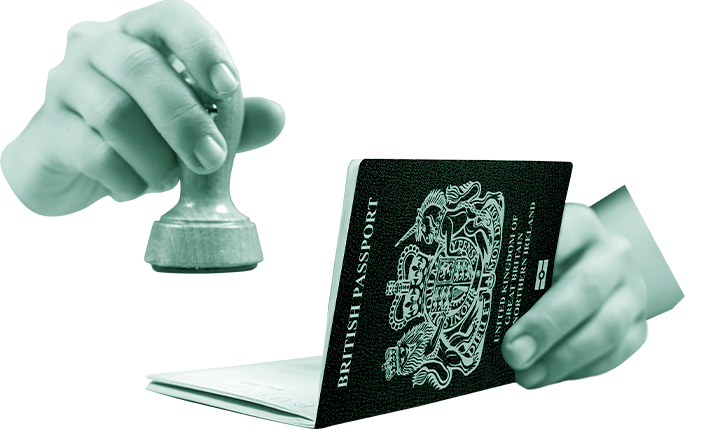Let's Talk

Need Help Urgently?
Call our 24 hour rapid response team now on 0333 311 1090
Request a callback
"*" indicates required fields


Navigating UK immigration can be tricky. This is especially true for specific visa types like the Religious Worker visa. This visa lets people work with religious organisations in the UK. This guide covers everything you should know about the Religious Worker visa. It includes information about who can apply, how to apply, and other important details.
The Religious Worker visa is a UK visa for people who want to do religious work for a set time. This visa has replaced the old T5 (Temporary Worker) Religious Visa. It allows individuals to live and work in the UK for up to 24 months.
It’s important to know that this visa is for people doing non-pastoral jobs or those in a religious order. If someone wants to take on pastoral religious roles, they should look at other visa options. One option is the Minister of Religion visa, which is meant for leaders in religious groups.
The Religious Worker visa helps religious organisations in the UK. It lets them bring individuals for temporary religious work. This work can include supporting religious activities, being part of a religious community, or doing admin tasks for a religious organisation.
This visa is valid for a maximum of 24 months. Individuals who come to the UK must leave when their visa ends. This visa does not lead to settlement known as Indefinite Leave to Remain in the UK. Still, it allows individuals to help with religious life for a set time.
It’s important to know that people on this visa can’t change to another visa category while in the UK. If someone wants to stay longer or change their visa, they need to leave the UK. Then, they can apply from their home country or another approved country.

When you move from a T5 temporary worker religious visa to a more stable option, like a Religious Worker Visa in the UK, you need to follow some steps. First, you must meet the eligibility requirements. Getting a valid Certificate of Sponsorship (CoS) from a licensed sponsor is a key part of the process. It is important to understand how to change from temporary to a more permanent status.
This includes knowing the financial needs and possible problems you might face during the visa application process. To ensure everything goes well, it is smart to seek legal advice. Moving to a Religious Worker Visa is a big change in your status and responsibilities.
Understanding the eligibility requirements is important for a successful application. The religious worker visa has certain rules that applicants must follow. First, you must be 18 years old or older to apply.
Also, you need a valid job offer from a UK religious organisation that has a valid sponsorship licence. This means the organisation is registered with the Home Office and can sponsor people for this visa.
The term “religious worker” covers many jobs in a religious organization. Each job is important in its own way. However, it is essential to separate these roles from those of a Minister of Religion. A Minister of Religion usually leads a congregation.
Religious workers do supporting tasks that help the organization run smoothly. Their jobs might include doing administrative work, reaching out to the community, teaching religious studies, or offering social care within the religious group. The key difference is that their focus is not on leading religious services or being the spiritual leader.
For people whose jobs include leading a congregation or preaching, the Minister of Religion visa is the right choice. This difference helps people find the correct visa type based on their planned religious work.
Securing a Certificate of Sponsorship (CoS) is essential for anyone who wants to work in the UK on a Religious Worker visa. This certificate shows that a licensed sponsor, which is a religious organization in the UK, is ready to hire the individual. It includes important details about the job offer, salary, and other related information.
In addition to the CoS, meeting the financial requirement is also important. This shows that the applicant can support themselves while in the UK without using public funds. They will need to prove they have enough funds or get sponsorship from the religious organization to cover living expenses.
Meeting these eligibility requirements helps to make the application stronger. It also shows UK immigration authorities that the person is coming to the UK for religious work and that they can be financially responsible. It is vital to provide the right information and supporting documents to ensure a smooth application process.
Applying for a UK Religious Worker visa needs attention to detail. You should know each step well. You can start your application online three months before you plan to arrive in the UK.
The application process includes getting all the important documents ready. You need to fill out the online form carefully. You may also need to go to a biometric appointment. Don’t forget to pay the needed fees. The UK government’s official website has helpful information. It will guide you to make the application process clear and easy.
Applying for a Religious Worker visa might seem complicated, but you can follow these simple steps:
Once you submit your application and the documents, you usually wait for the UK authorities to review it. Staying organized and careful during this process really helps improve your chances of success.
Organizing your supporting documents is very important for a smooth application process. Make sure each document is clear and complete:
Check the UK government’s website for a full list of needed documents based on your situation. Not giving all required documents may cause delays or even result in your application being denied.


The Religious Worker visa allows people to work in a specific job mentioned in their sponsorship certificate. This means the work done in the UK must support the activities of the religious organisation they are connected with and follow the agreed terms of employment.
Although the main focus of the visa is on religious work, it does allow some flexibility. Visa holders can take a second job in the same field for up to 20 hours a week. However, it is important to make sure this second job follows the rules and does not interfere with the main job listed on their visa.
Understanding your rights and limits as a Religious Worker visa holder is important for a good and legal stay in the UK. Like other workers in the UK, you have the right to the National Minimum Wage. This law helps ensure you are paid fairly. You can also take a second job if you follow certain rules. This can help you earn more money.
But, keep in mind that this visa does not allow access to public funds. Public funds include government financial aid, like welfare benefits or help with housing. If you hold a Religious Worker visa, you cannot get these benefits.
So, when you apply, you must show that you can support yourself. This usually means you need to provide proof of savings or support from your religious organisation. This shows that you can manage without needing public funds during your time in the UK.
Switching jobs or roles while you have a Religious Worker visa needs careful planning and following UK immigration laws. You can’t just change your main job without doing the right steps.
If you want to change your main job, your new employer needs to be a licensed sponsor. They must also give you a new Certificate of Sponsorship (CoS) for the same visa type. Also, the new job has to meet the Religious Worker visa requirements.
You can’t switch directly to the Skilled Worker route while in the UK. However, if you leave the UK and go back to your home country or another approved country, you can think about this option. You will need to get a job offer that fits the Skilled Worker visa needs. You will also need a new sponsorship certificate from a UK employer that can sponsor Skilled Workers. It’s a good idea to get help from immigration lawyers to make sure you follow all the necessary rules.
The Religious Worker visa is valid for a maximum of 24 months. However, people may be able to extend their stay based on their situation and eligibility. To extend this visa, you must meet certain criteria and follow the right steps.
This usually means showing that your reasons for being in the UK for religious work are still relevant. You will also need to provide proof that your sponsoring religious organisation still supports your stay and work. It is important to work closely with your sponsor and submit a thorough application to increase your chances of success.
You can apply for a Religious Worker visa extension if you are already in the UK. However, you need to meet some criteria. First, your current visa must be valid, so it is important to apply before it expires.
The rules to qualify for an extension are the same as those for the first visa application. You need a valid Certificate of Sponsorship (CoS) from your religious organisation, which confirms you are still employed. You must show that you continue to do religious work and meet the job’s needs.
Also, you must prove that you can support yourself without using public funds. This may require you to provide updated bank statements to show your financial situation. Knowing these requirements will help you have a good extension application process.
The process to extend a Religious Worker visa is similar to the first application, but you must show you still meet the requirements. You need to fill out an online application on the UK government’s official website.
It’s important to provide updated papers that show you are still following the visa rules. This should include a new Certificate of Sponsorship, proof of money, and any changes in your situation. You must also pay an application fee as part of your request to extend.
Make sure to submit your extension application before your current visa expires. This helps you avoid issues with overstaying. If your application is successful, you can stay in the UK legally. However, remember that this visa type does not lead directly to settlement.

The Religious Worker visa is for people outside the UK who want to help in the UK’s many religions. This visa is temporary and lets individuals do non-pastoral religious work for a licensed religious organisation.
The main goal of this visa is to allow people to join in religious activities. This could be through office tasks, community programs related to their faith, or other jobs that support a religious organisation’s efforts. However, it is important to understand that this visa is not for those who want to lead a church or take on pastoral roles.
The rules for getting a Religious Worker visa focus on your goals, background, and how you will support yourself. You need to be at least 18 years old and should truly want to help a religious organisation in the UK.
It’s very important to have a job offer from a UK-based religious organisation that is a licensed sponsor. This job offer will become a Certificate of Sponsorship (CoS). The CoS shows that the organisation will employ you and meet sponsorship rules. This sponsor is key in making sure you meet all the requirements. To submit a successful application for the Religious Worker visa, you must follow these rules carefully.

Applying for a UK Tier 5 Religious Worker visa means you have to meet more requirements to show that you qualify. You often need to prove that you have enough money to support yourself while you are in the UK. This means showing you have personal savings and won’t rely on public funds.
Also, you must confirm that you did not use this visa or a Charity Worker visa in the last year. If you stayed outside the UK during that time, it is acceptable. Meeting these requirements shows that you really intend to follow the rules of the visa.
To apply for a religious worker visa in the UK, you need a document called the Certificate of Sponsorship (CoS). This document comes from the sponsor organization. It is necessary for your visa application. The CoS has information about your job and the work of the sponsor organization. Having a valid Certificate of Sponsorship is very important. It shows that you qualify for the religious worker visa in the UK.
Applying for a Religious Worker visa means you need to know your role and how it matches what the sponsoring organization does. It is important to understand what you can and cannot do with this visa. Your religious role should mainly involve activities that help the core goals of the religious organization.
This could include helping with religious services or getting involved in community outreach. But there is a big difference between a Religious Worker and a Minister of Religion. While a Minister can lead a congregation, a Religious Worker cannot. Religious Workers should not take the place of current religious leaders.
Your job is to support, not replace, the work of these leaders. Keep in mind that the main goal is to help the organization run smoothly and to stay within the rules of your visa.
Meeting the financial requirement for a UK Religious Worker visa shows that you are ready to support yourself during your stay. This helps to make sure you do not rely on public funds and can manage your expenses without needing government help.
Usually, you need to show enough money in your bank account. This shows that you have a steady financial history. The amount you need may change based on how long you stay and if you are bringing someone with you.
Not meeting the financial requirement could result in your application being denied. This makes it very important to plan your finances before you start applying for the visa. It is also a good idea to check the latest information on the official UK government immigration website. This helps you understand the current requirements and make sure your financial situation fits with the visa rules.
The Religious Worker visa is different from many UK visas. It does not require an English language proficiency test for eligibility.
Still, knowing English can make your time in the UK much easier. It helps you communicate with your religious organisation, meet people, and use public services without trouble.
Even though the English test isn’t required now, rules can change. It’s a good idea to keep up with any updates about English language requirements. Visit trusted sources like the UK government’s official website for immigration for accurate and current information.
To start your application for a Temporary Religious Worker visa, the first step is to get a job offer from a religious body in the UK. This organization needs to have a valid licence to sponsor you for this type of visa.
After you have the sponsorship, you can apply online on the UK government’s visa and immigration website. It’s very important to fill out all the required information truthfully to show your true intentions. If you follow the instructions closely and provide all the necessary documents, it will help make your application smoother and avoid any delays or problems.


Submitting all the right documents with your Religious Worker visa application makes things easier. You should include a valid passport or another accepted ID. You also need your Certificate of Sponsorship (CoS) from your sponsor, and proof of your finances to show that you can support yourself.
Additionally, you may need other documents based on your situation. This could be proof of your relationship if dependents are coming with you, or evidence of past travel to the UK. Getting these documents ready ahead of time helps your application go smoothly and shows you are prepared.
Securing a Religious Worker visa brings some responsibilities. You need to follow the rules set by the Home Office. These rules make sure your stay in the UK is legal and matches the purpose of the visa.
One key rule is that you can only do the religious work mentioned in your sponsorship certificate. If you work outside what is allowed, you could lose your visa.
It is important to understand and follow these limits for a smooth stay in the UK. This shows that you respect the rules set by immigration authorities. Remember, breaking these rules could lead to serious problems. It might affect your future visa applications or even get you removed from the country.
The Religious Worker visa is a temporary work visa that lets people do religious activities in the UK for a limited time. Usually, this visa will last for up to 24 months, which is a good chance to help your sponsoring organization.
Still, it’s important to know that the time you get can change based on your sponsorship details. Your sponsor may provide a shorter period that fits their needs and project timelines.
The Home Office will look at your situation and the information on your Certificate of Sponsorship (CoS) to decide how long your visa will actually last. Always check your visa grant notice carefully to make sure you know the exact time you can stay and work in the UK.
The Religious Worker visa allows you to live and work in the UK for a set time. However, it’s important to know that this visa doesn’t lead to settlement in the UK. It is meant for temporary religious work.
This means that, unlike some other UK visas, you can’t extend the Religious Worker visa forever or use it to get Indefinite Leave to Remain (ILR). Even after several years on this visa, you usually won’t be able to apply for settlement.
Still, there could be other ways to settle depending on your situation. For example, you might look into moving to a different visa type, such as the Minister of Religion visa. This visa could help you reach settlement based on its specific rules and conditions.
Applying for a UK visa costs money, and the Religious Worker visa is no different. It is important to include these fees in your budget.
In addition to the visa application fee, there is a healthcare surcharge. This surcharge allows you to use the UK’s National Health Service (NHS) while you are there.
Here are the current costs for the Religious Worker visa:
| Fee Type | Cost |
| Visa Application Fee | £259 |
| Healthcare Surcharge (per year, per adult) | £624 |
Make sure to check if you can get any discounts or exemptions based on your nationality or other reasons. Remember, these fees can change. So, it’s always smart to check the official UK government website for the most up-to-date prices.
While the standard processing times for a UK Religious Worker visa are usually fair, you can pay extra for quicker decisions. There are priority services that can speed up the process.
The Priority Service usually gives a decision within five working days, if available, and costs more. The Super Priority Service is even faster, often allowing a decision in just 24 hours for an added fee.
These services are great for those who need a fast response. However, they may not always be available and can depend on where you are and the visa application centre you use. It is a good idea to check if these services are available when you apply. This way, you can see if you meet the requirements and if it fits your needs and schedule.


While the Religious Worker visa does not lead straight to settlement, you may extend your stay in the UK in certain situations. A visa extension lets you stay in the country legally longer than the time given at first.
To apply for an extension, you need to show that your reasons for doing religious work in the UK are still true. You will also need ongoing support from your religious organisation, shown by a new Certificate of Sponsorship (CoS).
It is important to provide proof that you follow the visa’s rules and show you are financially stable to have a good chance at a successful application. Keep in mind that just meeting the first eligibility requirements does not mean you will get an extension; your updated situation will be looked at carefully.
Yes, you can bring your family with you to the UK on a Religious Worker visa. This includes your spouse, partner, and any dependent children under 18. Each family member has to submit their own visa application. They also need to meet the eligibility requirements for the visa.
The Religious Worker visa does not give you a direct way to get permanent residency or Indefinite Leave to Remain (ILR). Still, you can look into other UK visas that can help you reach your goal of settling down.
If your application is denied, you will get a written notice that explains why. You may be able to reapply or appeal the decision. It’s a good idea to get legal advice from immigration solicitors in these situations.


Call our 24 hour rapid response team now on 0333 311 1090
"*" indicates required fields
"*" indicates required fields